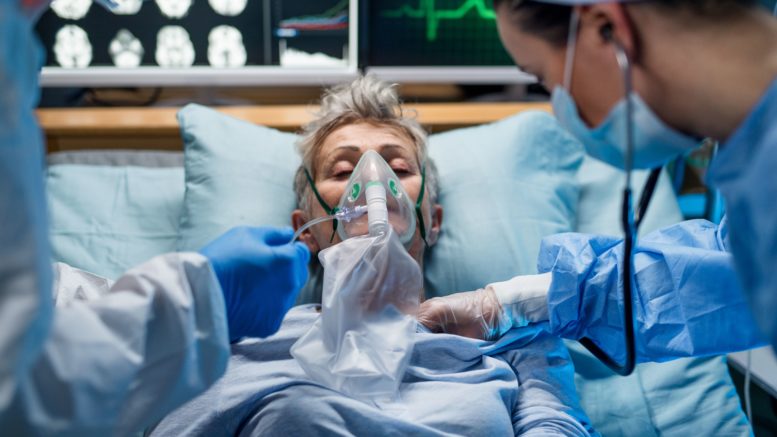In a tremendous demonstration of global collaboration, clinician-scientists have pooled data from 121 hospitals in eight countries to find that inexpensive, widely available steroids improve the odds that very sick COVID-19 patients will survive the illness.
The findings were made through the "Randomized Embedded Multifactorial Adaptive Platform-Community Acquired Pneumonia" (REMAP-CAP) trial and are reported today in JAMA as part of a four-article package. The World Health Organization is updating its COVID-19 treatment guidance as a result.
REMAP-CAP is one of seven randomized control trials to test corticosteroids -- a class of drug that lowers inflammation and modulates immune system activity -- for treating COVID-19 in critically ill patients. An analysis combining all the trial data reinforces the June results of the UK RECOVERY trial, which found the steroid dexamethasone reduced deaths by 29% in ventilated COVID-19 patients.
"It is relatively rare in medicine that you find drugs where the evidence of their effectiveness in saving lives is so consistent," said lead author Derek Angus, MD, MPH, professor and chair of the Department of Critical Care Medicine at the University of Pittsburgh and chief health care innovation officer at UPMC. "This is, in many respects, the single clearest answer we've had so far on how to manage terribly ill COVID-19 patients. People on ventilators or oxygen and under intensive care should definitely be given corticosteroids."
Between March and June, the REMAP-CAP corticosteroid trial randomized 403 adult COVID-19 patients admitted to an intensive care unit to receive the steroid hydrocortisone or no steroids at all. The trial found a 93% probability that giving patients a seven-day intravenous course of hydrocortisone would result in better outcomes than not giving the steroid. The results were consistent across age, race and sex.
"At the beginning of the year, it felt almost hopeless at times, knowing that we had no specific treatments. It was a worrying time," said senior author Anthony Gordon, M.D., professor of anesthesia and critical care at Imperial College London and an NIHR research professor. "Yet less than six months later, we've found clear, reliable evidence in high-quality clinical trials of how we can tackle this devastating disease. We now have more than one choice of steroid treatment for those who need it most. Steroids are not a cure, but they help improve outcomes. Having a choice of different types of steroids, all of which seem to improve patient recovery, is great as it helps ease the problem of drug supply issues."
REMAP-CAP and the other corticosteroid trials did not test the drugs in patients with less severe COVID-19. Steroids are not currently recommended for these patients because they can dampen the immune system and have serious side effects.
It also was mostly conducted in resource-rich countries across Europe, North America and Australasia, so the findings may not translate to low- and middle-income countries.
Because it is designed to simultaneously test multiple combinations of potential therapies -- as opposed to the traditional, slow clinical trial process that tests one therapy at a time -- REMAP-CAP is particularly well-suited for rapidly identifying effective treatments during the COVID-19 pandemic. It currently is testing thousands of different treatment regimens, including various doses and combinations of vitamin C, convalescent plasma, blood thinners, antivirals and immune modulators.
"The publication of our results, those of the other trials as well as the prospective meta-analysis, all within seven weeks of the RECOVERY publication, is a great example of what we can accomplish with global collaboration," said co-author Lennie Derde, MD, PhD, from the University Medical Center in Utrecht, the Netherlands. "And the joint effort of so many people across the globe to deliver this trial has been especially inspiring."
Spurce: University of Pittsburgh

Be the first to comment on "Corticosteroids Improve Survival in Critically Ill COVID-19 Patients"